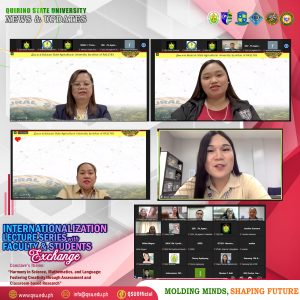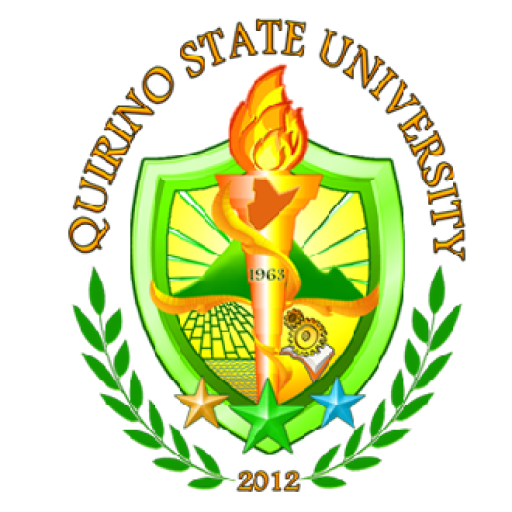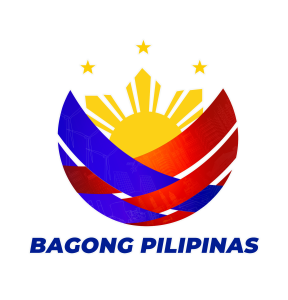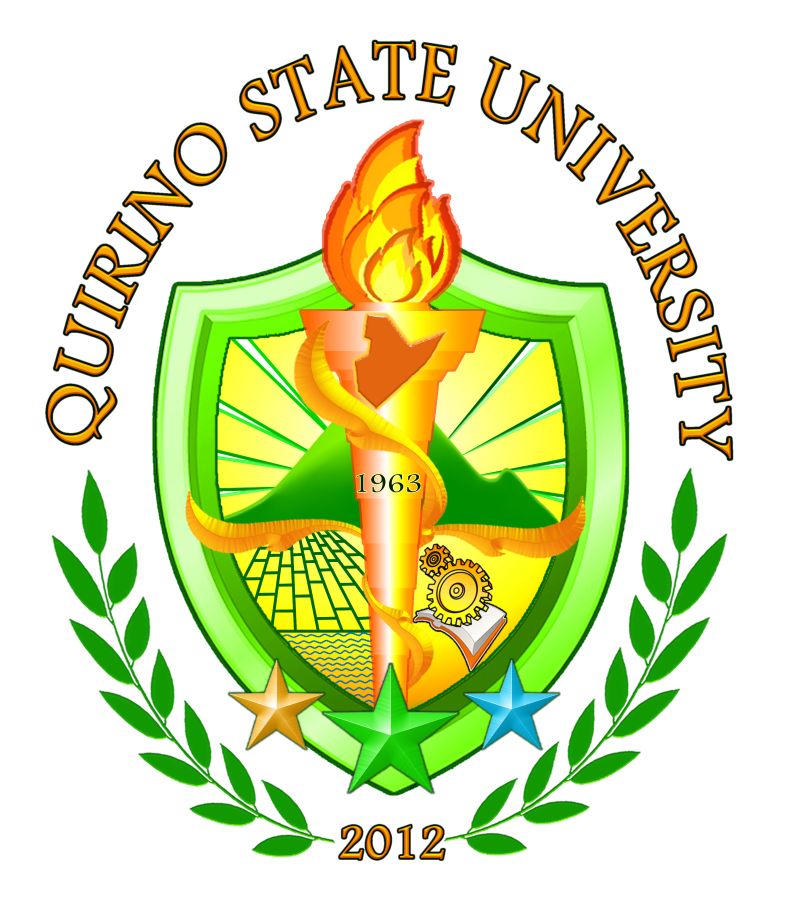Following the first launching of the Internationalization Lecture series, QSU and its partner institutions successfully conducted the 2nd Session on March 22, 2024, with the Bulacan Agricultural State College (BASC) as the facilitator.
The conclave was administered online via Zoom and aired live on QSU’s official FB page. In this session, the topic focused on Assessing Student Outcomes in Language, Science, and Mathematics. Dr. Maria Theresa B. Valerio of QSU, Dr. Raymond S. Manalastas of BASC, and Professor Tristan Deo M. Pariñas of Mariano Marcos University (MMSU) tackled assessment tools in their respective field of expertise.
During the opening of the program, the BASC Vice President for Academic Affairs, Dr. Cecilia S. Santiago, thanked QSU for including BASC as one of the team players in this international affair. She welcomed all the participants and addressed each head of the other collaborating colleges and universities of MMSU-PH, Adamas University- India, and Can Tho University-Vietnam. In her speech, she emphasized the indispensable role of assessment in the teaching and learning process. She challenged the participants to listen and share the knowledge they will learn from the lecturers, and the faculty to apply the expertise they will gain in their respective classes.
In their lectures, the key speakers illustrated the diversity of every learner in culture, level of knowledge and understanding, and learning styles. And based on these differences, assessment is performed in different approaches towards the common goal of enhanced learning.
During the session, some BASC faculty members gave their insights on assessment learning. According to Mx. Amie Ramos, the presentation on Assessing Student Outcomes was an eye-opener and would help develop the student’s scientific thinking, curiosity, and appreciation of Science. Mr. Mangil added that learning should always match the assessment method. Dr. Angelito S. Manalastas shared his insights by giving meaning to the MATH acronym, which is Meaningful in the teaching-learning process, Assessment should be authentic, Thinking mind-learners should think constructively and with logical reasoning, and Holistic approach encompassing all skills to be developed and aligned with differentiated instructions.








